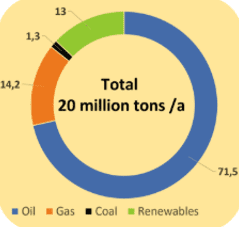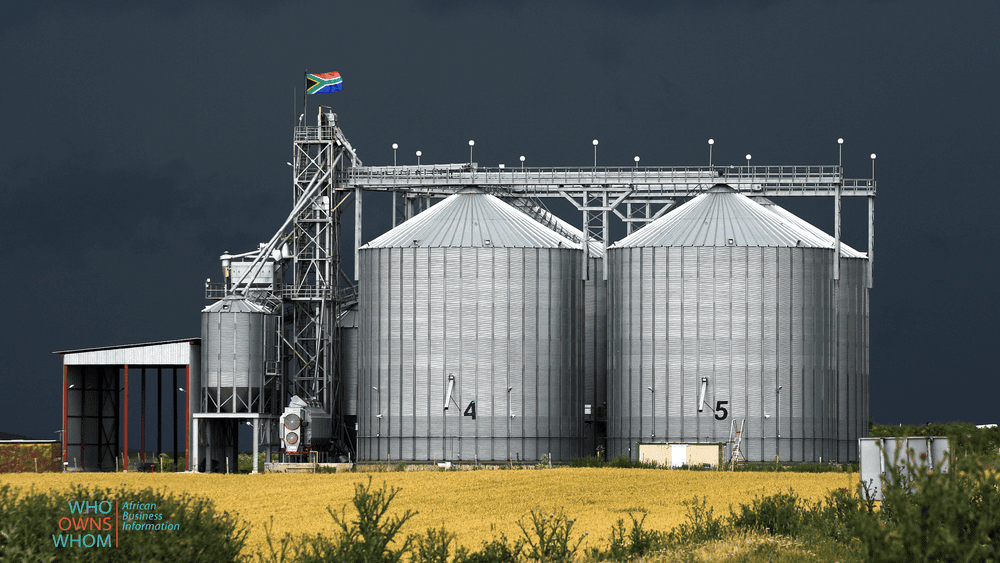Manufacture of basic chemicals in South Africa, a strategic pillar for industrial development
Basic chemicals, or commodity chemicals, are fundamental building blocks used for making complex products. They are typically produced in large volumes, used as raw materials, and are generally not specialised as they serve broad purposes. These chemicals are an important element in the value chain and a catalyst for end-user or consumer products that bring convenience to our lives.
On the African continent, South Africa’s chemical manufacturing industry is relatively advanced and lies at the heart of the production of products used across various sectors, including agriculture, mining, pharmaceuticals, and plastics.
The mainstay of South Africa’s industrial development
While the basic chemicals industry is experiencing a fundamental shift, driven by sustainability imperatives, geopolitical pressures, and technological innovation, oil remains the critical input in the chemical industry worldwide. However, South makes much more use of coal-based inputs, and its chemical sector, as pointed out in the Who Owns Whom report on the manufacture of basic chemicals [found here], is dominantly driven by Sasol’s coal-to-liquids and coal-to-chemical operations. Sasol chiefly relies on coal for about 85% of its feedstock and natural gas for about 15%. Its reliance on oil-based feedstock is very modest compared to global norms.
Material inputs in Chemical products (worldwide)

South Africa is also globally recognised for its expertise in the coal-to-chemical technologies pioneered by Sasol, which developed synthetic fuel and chemical production from coal, reducing the country’s reliance on imported oil and creating a robust domestic supply of important chemical inputs.
Current status of the chemicals industry in South Africa
The chemicals industry has been plagued by oversupply and suppressed demand, putting significant pressure on the profitability of major players, including Sasol. Low demand stems from a complex mix of structural, economic, and policy-related challenges that have constrained both production and consumption.
Internal demand for basic chemicals is relatively limited compared to China or the US. This impedes economies of scale and deters large-scale investment.
However, local chemical production can be advantageous, for example, in agriculture, which can use locally-made fertilisers and reduce reliance on imported chemicals. This reliance was brought into sharp focus during the pandemic when supply chains were disrupted.
The industry faces increased operating costs due to taxes on combustion and carbon emissions.
Opportunities in the basic chemicals industry
We need the chemical industry for a range of consumer products:
- Plastics and polymers including bottles, car dashboards, furniture and mattresses;
- Pharmaceuticals including painkillers, antibiotics and vaccines;
- Agricultural products such as fertilisers, herbicides, insecticides and growth regulators;
- Polyester and nylon fabrics, elastics, dyes and coatings;
- Construction products such as PVC pipes, paints, adhesives, sealants and insulation;
- Electronics and technology products such as silicon wafers, circuit boards and battery electrolytes;
- Consumer goods including cleaning products, cosmetics (fragrances), detergents and air fresheners; and
- Fuel additives, lubricants and lightweight composites in energy and transport.
The bottom line – a spark for re-invention
Chemicals provide the plastics in our toothbrushes, the fertiliser for the wheat in our breakfast cereals, the dye in our clothes, the coatings on our phone screen, and the painkiller for a headache — meaning that almost every modern product would either vanish or become drastically more expensive without them.
This is food for thought for the Just Stop Oil and Extinction Rebellion activists. Sasol, as South Africa’s main supplier of these chemical products, is a critical cog in the wheel to ensure South Africans can continue to enjoy the benefits of this major but largely incognito industry.
Innovation, sustainability, and strategic investment position the industry very well for the future of African manufacturing. For those looking for investment opportunities, this is an industry to watch. The molecules may be small, but the impact is massive.
Contact us to access WOW's quality research on African industries and business
Contact UsRelated Articles
Blog Manufacturing
The power of the mill: Food security and the evolution of South Africa’s grain sector
Contents [hide] Flour and grain mill products are central to food security and the backbone of the agro-processing ecosystem. Grains are a critical input for baking, brewing, animal feed, and...
BlogCountries ManufacturingSouth Africa
South Africa’s Plastic Manufacturing Industry: Innovation, sustainability and investment opportunities
Contents [hide] Plastic is a versatile, cost-effective, and useful product with a wide array of applications in almost every industry, from food to transportation, packaging, and manufacturing. Technological innovations and...
BlogCountries ManufacturingSouth Africa
Is the Tyre Industry in South Africa running flat?
Contents [hide] Introduction The South African Tyre Manufacture Conference (SATMC), the official industry body and trade association of local tyre manufacturers, reports that the installed production capacity of tyres has...





